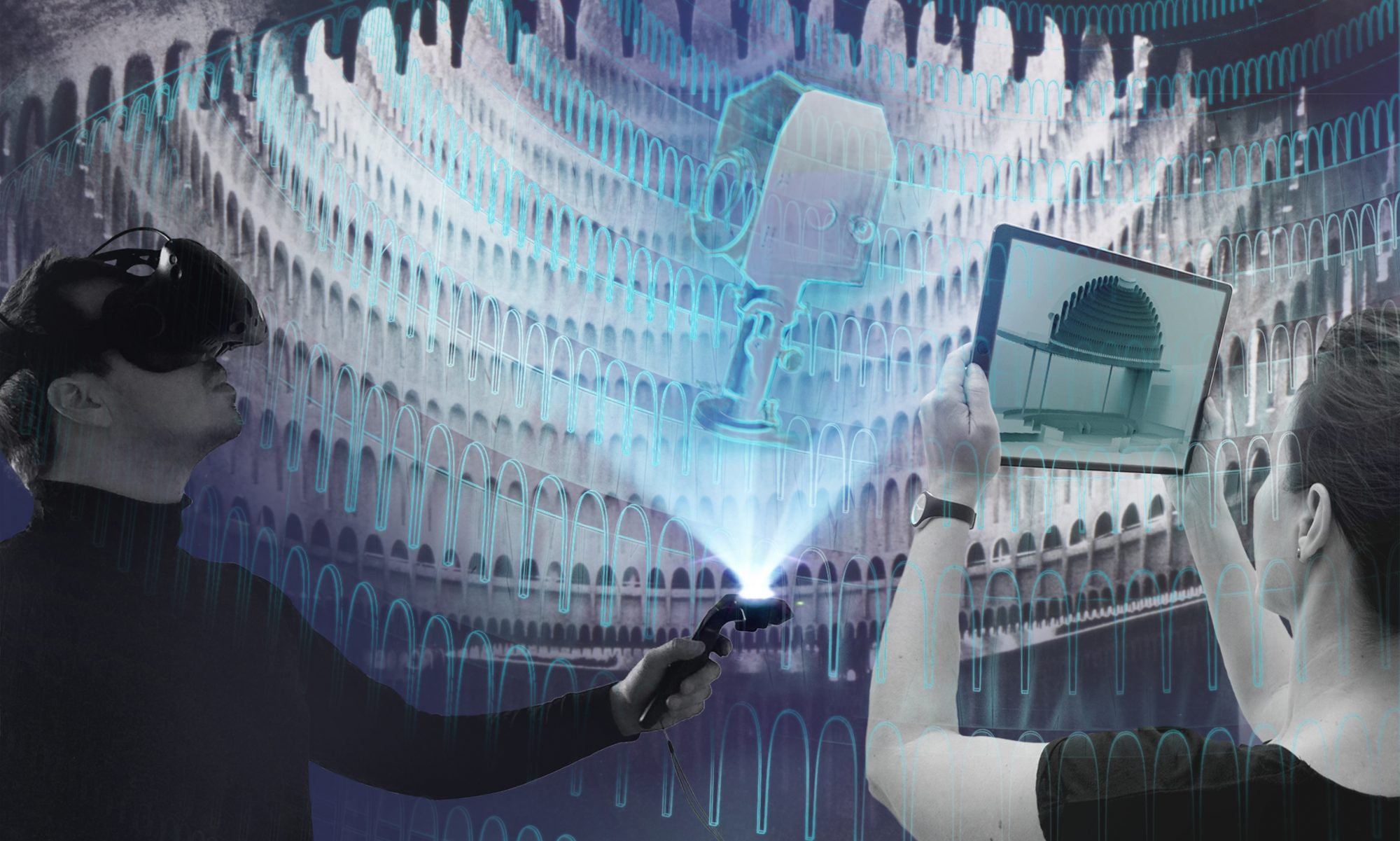Recently, the article “Making im/material theatre spaces tangible – Exploring collection objects virtually” was published in the volume “Objects on the internet – Scientific collections in digital transformation” by transcript publishing house.
At the conference of the same name project leaders Franziska Ritter and Pablo Dornhege highlighted aspects from the project “Das Virtuelle Große Schauspielhaus Berlin” (AT) at the Germanisches Nationalmuseum Nuremberg in November 2019.
Free download of the article as PDF: https://www.transcript-verlag.de/978-3-8376-5571-1
In their contribution, Franziska Ritter and Pablo Dornhege describe the possibilities that virtual reality opens up as a space- and time-based medium for the accessibility of theatre objects and for the experienceability of theatre history. They investigate related questions in the context of the research project “Das Virtuelle Große Schauspielhaus Berlin” (AT): What new functions do the collection objects have in their existence as a digital twin in relation to the original and what other properties do they need in the field of tension between museum artifact and functional asset? Is it at all possible to create auratic object experiences in virtual spaces and does this lead to a new way of dealing with the objects? What can we learn from the theater and its dramaturgical, narrative and staging methods for the design of virtual experience spaces?
The volume “Objects on the internet – Scientific collections in digital transformation” by Udo Andraschke and Sarah Wagner (eds.) focuses on the digital documentation of objects and their virtual availability as opportunities for research, education and public relations. At the same time, the book addresses the fact that these new potentials also present museums and universities with a number of questions and challenges: What goals and tools do we use to digitize our collections? What access to them do we want to allow? What is the relationship between analog and digital objects?
This volume brings together positions from theory and practice that deal with the digitization and digitality of scientific collections. The authors provide insights into current approaches, illuminate future perspectives, and ask about the consequences of digital collection practice.
Project “Objects on the internet”: objekte-im-netz.fau.de



